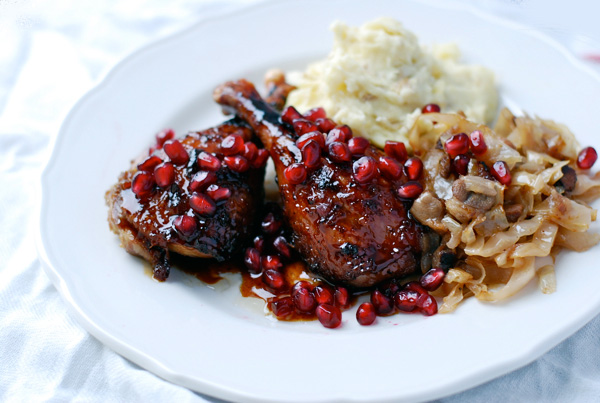
Through recollection and tradition, food connects us to the past. But food can also be a means of tracing culinary habits and preferences of the culture at large. I love The Way We Ate for that very reason (Um, we’ve come a long way, baby?). In the middle of the 20th century, cooking was a staid and static thing. A time when you could arrive in an unfamiliar city, ask a local what the best restaurant in town was, and be directed to an establishment that really was by general consensus “the best restaurant in town.” And it would have linen tablecloths and fresh carnations on the table and instead of having a few signature dishes developed by the chef, or a selection of regional specialties, it would serve classic dishes like Coq au Vin or Beef Wellington, whether you were in Milwaukee or Phoenix.
I suspect the reality was more complicated (Did New Yorkers in the know really want to eat at the Ritz?) and I’m glad that contemporary dining embraces a variety of cuisines and methods, but I’m still fascinated by those classic, staid restaurant dishes, which is why when we had a special occasion coming up (initially Christmas Eve dinner until the day got away from us and we rescheduled for New Year’s Eve), I was excited to come across a classic recipe for Duck á L’Orange, a dish I’d never eaten.
In fact, not only had I never eaten duck á l’orange, I’d also never roasted a whole duck before and I was looking forward to the challenge of waterfowl (which is a little harder to get right because of its higher fat content). There are a few cookbooks we turn to when we’re working at something unfamiliar and for meats, Deborah Krasner’s Good Meat is one of my favorites for its useful insights into the basics of cooking with different meats, and its simple and delicious recipes.
My duck á l’orange was rich, but enough fat had been rendered that it wasn’t overwhelming, and the simple orange sauce was thick (my sauces tend to get a little thin) and lightly sweet with a hint of citrus tang that complemented the duck wonderfully. I served the duck with a smattering of pomegranate arils, braised cabbage, and creamy mashed potatoes. Because I hewed so closely to Deborah Krasner’s recipe, I won’t be posting one today, but I think I’m comfortable enough to experiment a little next time around.
This is so beautiful! I have a very fond memory of eating duck a l’orange at a “fancy” restaurant when I was little and feeling so very grown up for doing so. I can’t wait until you post your recipe, looks so stunning with the pomegranate seeds.